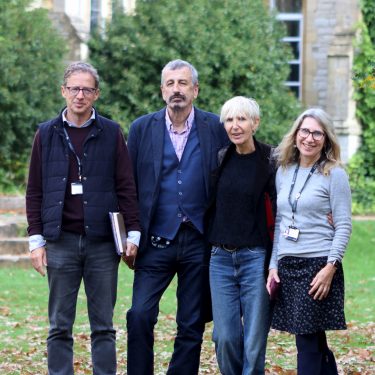This is an edited version of Professor Smith’s essay on Global Citizens in Laying the Foundations, first published in June 2016.
Universities and their students share a common challenge: competition in an international environment. Employers are increasingly willing to scour the global labour market for the graduates best prepared to work in their businesses. Likewise, universities seek to recruit the highest calibre staff and students to their institutions. As educational institutions, we have both the means and the motivation to support our students in becoming global citizens ready to act in a globalised workplace.
Business leaders report the need for school leavers to be able to think globally in order to succeed, but are often lacking in new recruits. Though many of our universities benefit from a two-way flow of staff and students, a university can only really claim to be internationalised if a global perspective is embedded into every facet of its research, partnerships, curricula and extra-curricular activities. When the overall approach is at this stage of maturity, the full benefits for the students can be realised.
A key way that UK students come into contact with the world beyond our shores is through studying abroad. Though research shows that students in the UK are generally less motivated to study abroad than their counterparts in the US and Europe – and only time will tell what impact the exit of the UK from the EU will have on their opportunities to do this – there are a number of academic and non-academic motivations for studying abroad.
In a recent study, 90% of students ranked employability as an important or very important reason to study abroad. Among the most important factors are building confidence, immediate employment prospects and the opportunity for an international career. This is no wonder given that the 2013/14 survey Destination of Leavers from Higher Education found that mobile students are less likely to be unemployed, will earn a higher average salary and are more likely to be employed within the top three socio-economic classifications than those who do not study abroad.
Students also keenly recognise the cultural benefits of studying abroad. Though cultural benefits are not always considered skills obviously pertinent to employment, they are invaluable to employers; key global competencies include working collaboratively, being able to communicate, showing resilience and being able to understand multiple perspectives.

Students celebrating The World at Lancaster Week
Much more can be done to equip students with the ability to articulate and evidence skills enhanced through international experiences. The question, though, is how we can provide a greater choice and extent of international experience to our students, to support their long-term employability.
Campus universities can become miniature world cities, pulsating with diversity and interest. International students are an essential element and most UK students value their contribution. In 2013, 10% of all international students worldwide came to the UK and we are third in the Organisation for Economic Co-operation and Development (OECD) for the proportion of tertiary level students of international origin. This is an enviable position, and we have a strong product, but competition is fierce and we should beware of incremental changes to visa regulations, which might lead to a reduction in international student demand.
Lancaster University is fortunate to have a network of partner institutions across teaching and research, with major collaborations based in Ghana, India, Malaysia and China. The depth of these relationships allows for the co-creation of interesting new opportunities for our students to address issues such as public health, sustainability and digital security.
One such opportunity is a six-week programme on public health delivered jointly by Lancaster and Boston universities, in Accra, Ghana. As part of this partnership, participating students are offered a unique experience, taking part in internships with non-government organisations and hospitals while learning alongside peers from at least two other continents. This undoubtedly contributes to the development of new competencies that can be articulated and evidenced in future job applications.
For our graduates to become truly global citizens we must engender an understanding of what goes beyond the borders of the UK. There are sound educational reasons why we would want to broaden our curriculum to include topics of global significance. Students should have the opportunity to consider global issues and develop an understanding of how their discipline is applied within different cultural, geographic and economic contexts.
As universities have become more global in their outlook, so have their students. Educators should be prepared to respond to these conditions, finding ways to unlock the global citizen in everyone. Only then will we be preparing our graduates for the global workplace, and through this engagement allowing them to reap the associated cultural and economic benefits throughout their lives.









